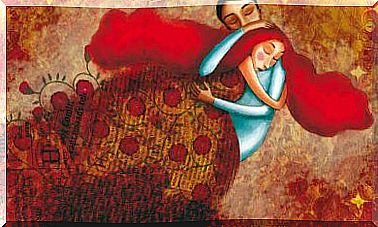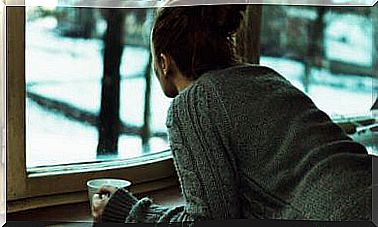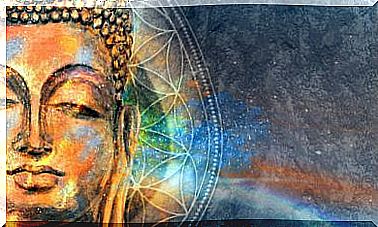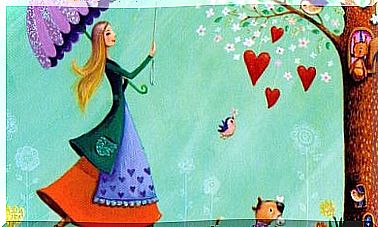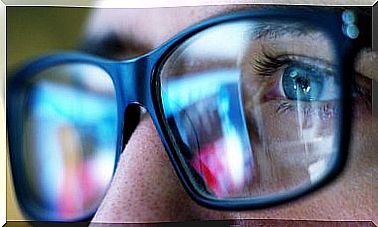The Choice Of Object In Emotional Dependency
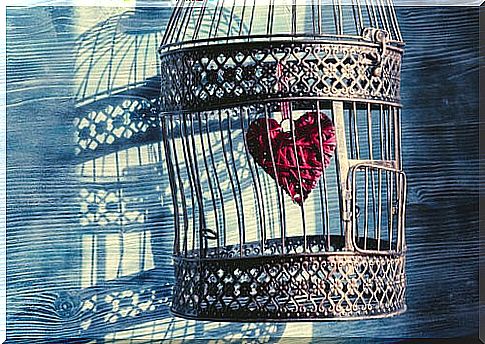
Often times, people who have been in harmful and destructive relationships find themselves repeating the pattern with different individuals. It can be frustrating and painful to see the bad fortune that accompanies us in love, but the reality is that the choice of object does not occur by chance.
It is not luck that leads you to bond with the same type of person over and over again. It is your unconscious, guiding you in the shadow. For this reason, it is so necessary to analyze our decisions and discover the origin that motivates them.

The choice of object in emotional dependence
Emotional dependence is a pathological bonding style that is based on an affective lack. The need for approval and the fear of abandonment are so intense that the individual often endures mistreatment and humiliation. In return, what you are looking for is that the relationship does not end.
When the couple breaks up (usually by decision of the other member) the emotional dependent is left without the pillar that sustained him. He then suffers a kind of withdrawal syndrome that leads him to bond again as soon as possible. However, the pattern tends to repeat itself and the person is again immersed in a conflictive, unstable and painful relationship.
It is common that after several similar experiences you wonder how it is possible to always end up interacting with cold and abusive subjects. Individuals who further reduce their already low self-esteem. It is important to understand that it is precisely this absence of self-love that leads to unconsciously selecting this type of companion.
What are the characteristics of the object?
Susceptible to being idealized
Those who have an adequate emotional balance seek to bond with similar people to establish a reciprocal and symmetrical exchange. But, on the contrary, emotional dependents are attracted to people whom they perceive as superior and tend to idealize them.
This supposed superiority generally does not imply that the individual actually possesses special qualities. It is the iron self-esteem and the overwhelming self-confidence that arouses the fascination of the salesperson.
They find in these self-exalted individuals the ideal of what they lack: self-love. Thus, it is common for the dependent person to be much more valid and capable than his partner, but neither of them perceives it that way.
Narcissistic
This high self-esteem often translates into narcissism and egotism. Indeed, the chosen objects are often self-centered, manipulative, and lacking in empathy. Cold and unapproachable subjects who feel great and deserving of every privilege.
His overvaluation is perfectly complemented by the undervaluation of the clerk. The latter offers him the praise and dedication that the narcissist believes he deserves.
Dominant
Another relevant characteristic in the choice of object is the dominant tendency of couples. Their narcissism leads them to seek a superior position in the relationship and to demand subordination to the other.
Again, a perfect binomial is formed, since the emotional dependent (due to his low self-esteem) does not overshadow the narcissist. On the contrary, he constantly admires, praises and praises him.
He overlooks his shortcomings and submits to all kinds of humiliation and contempt that he even goes so far as to normalize.

The choice of object: a perfect fit
After analyzing these characteristics, it is clear that the union between emotional dependents and narcissists is not random. Their qualities and deficiencies complement each other perfectly, making each one obtain from the other what they unconsciously seek.
In no case is it a conscious or deliberate decision. No one would voluntarily choose an exploitative and abusive person to share their life with. However, until you have the courage to face your own gaps, the cycle will continue.
Therefore, if you identify with the above, if you have been immersed in this type of asymmetric and harmful relationships, become aware. Analyze what leads you to make that choice of object in your relationships and heal the origin. Only by working on your self-esteem will you be able to eliminate fears and deficiencies. Only then will you reach the position that allows you to relate as equals, from love and respect.
